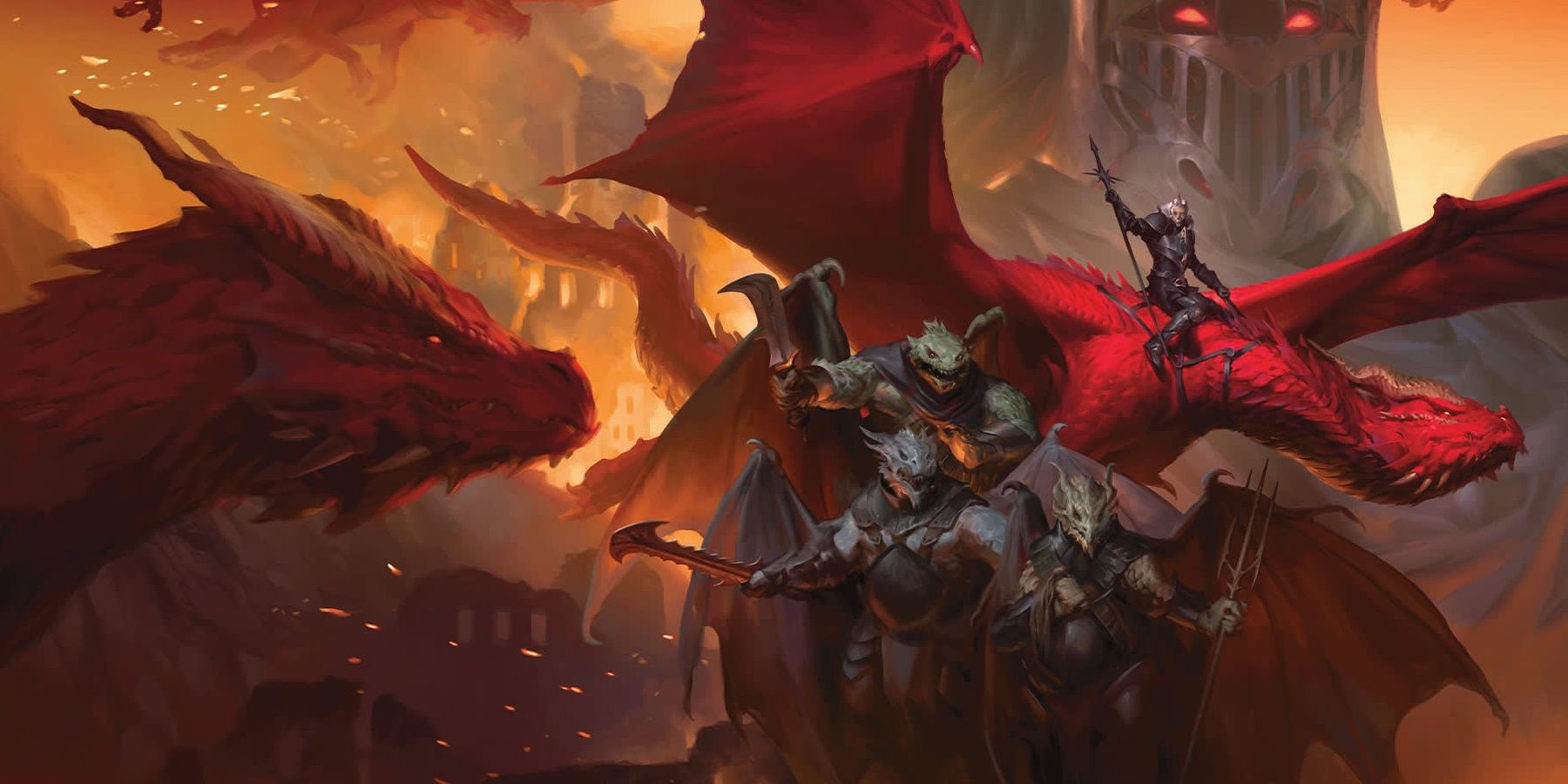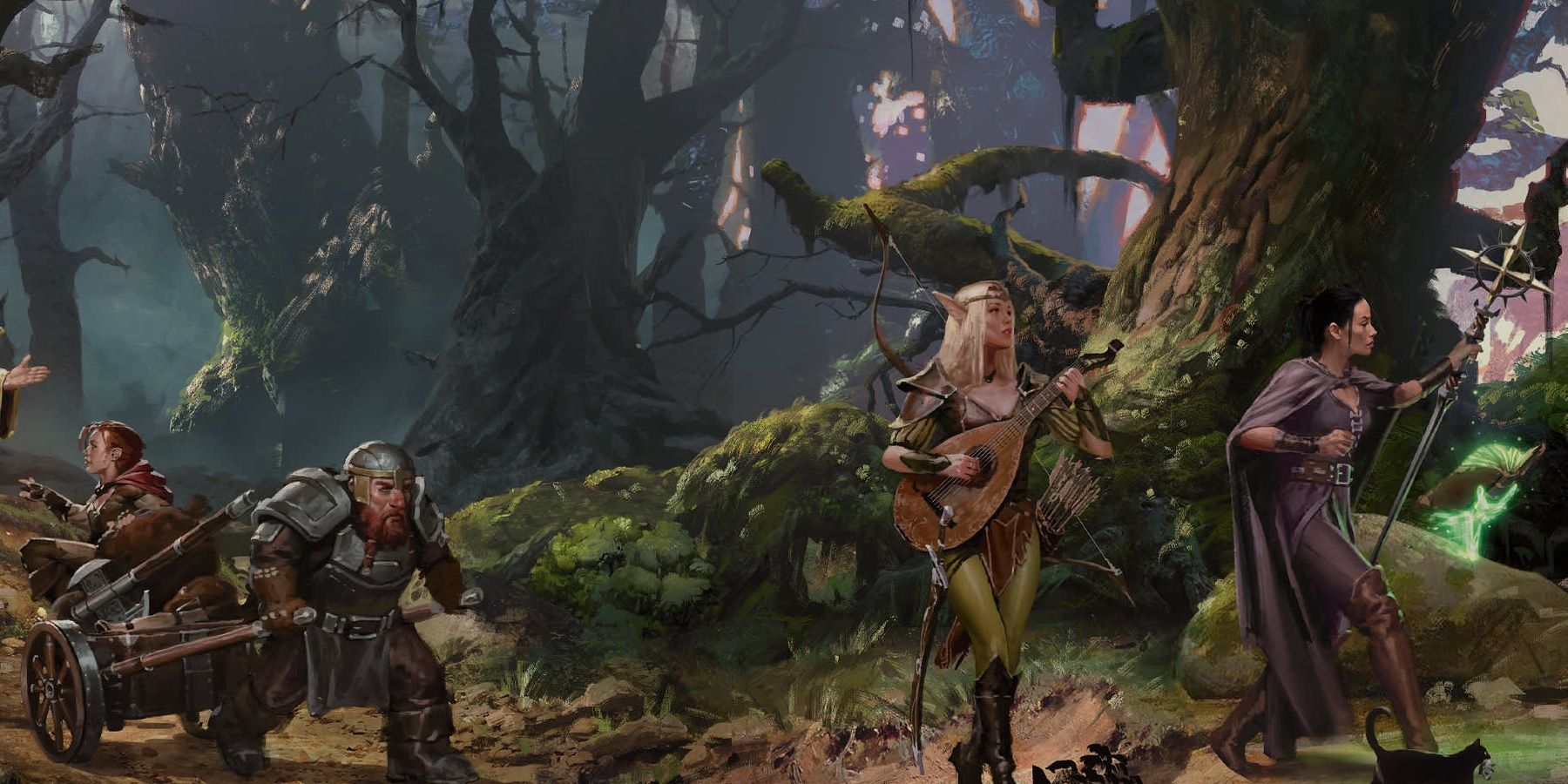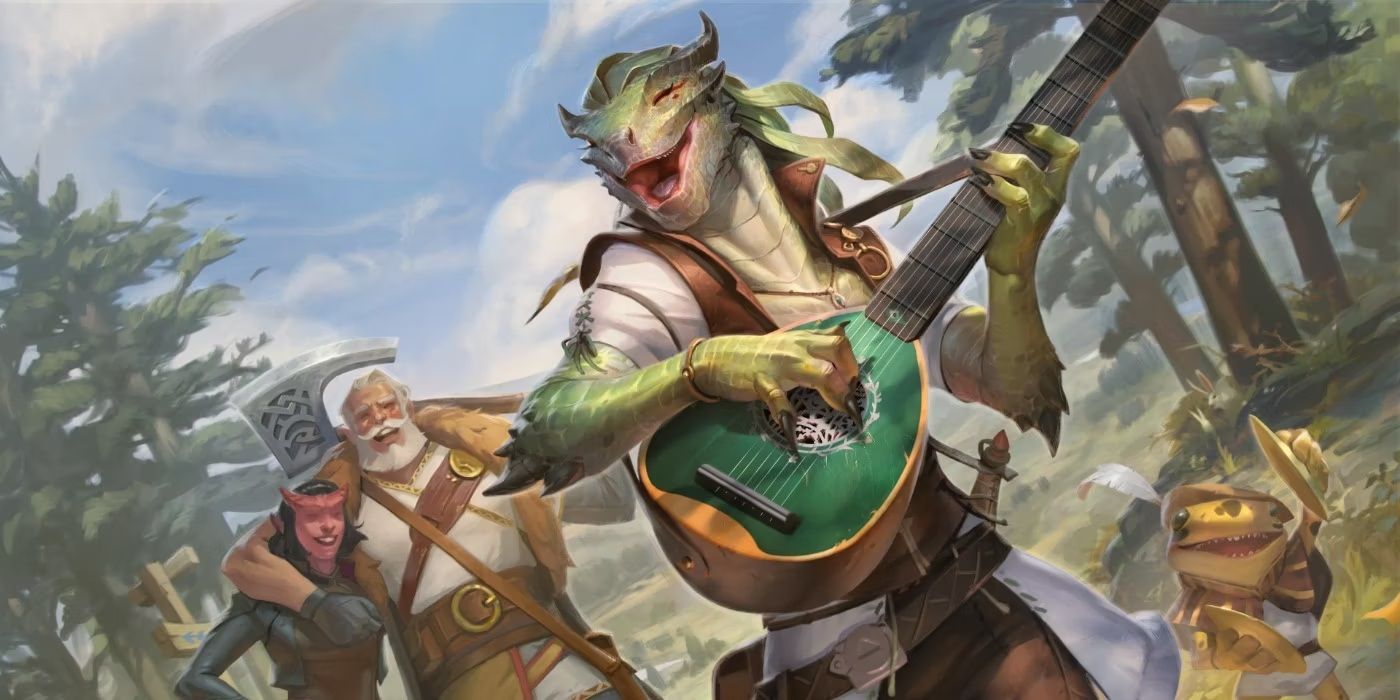2024 will hail the release of a new edition of Dungeons & Dragons, giving players access to One D&D. Unlike previous editions which completely changed the way the game was played, One D&D will actually be compatible with Dungeons & Dragons 5E. With the popularity and huge success of the iconic tabletop's fifth edition, it's no surprise Wizards of the Coast would want to hold onto that game's success for as long as possible. However, this doesn't mean that One D&D won't come with its own set of changes, some of which could be puzzling for even a long-time player of the game.
Already, there are rumors of One D&D not allowing third-party homebrew content to be produced. This would bring a big change from Dungeons & Dragons 5E, which did allow creators to make their own content and sell it based on the system. However, beyond alterations being made to the way One D&D deals with homebrew content, there are some big changes coming to the game's classes, bringing each of them into a new category, as well as giving some a completely different role.
The New Class Categories in One D&D
Potentially the biggest change that will come to every class in One D&D is that they are now all being brought into their own categories. The Bard, Rogue, Artificer, and Ranger are part of the Expert group. Fighters, Barbarians, and Monks are all Warrior classes. The third group is the Priests, which includes Dungeons & Dragons' Paladin, Druid, and Cleric. Finally, there's the Mage group, which has the Wizard, Sorcerer, and Warlock. Fans pointed out that these categories once existed back when Advanced Dungeons & Dragons first released, showing that Wizards of the Coast is perhaps returning to old systems for its new edition.
It seems that this major change has been made in order to streamline Dungeons & Dragons and make it more welcoming to newer players, as they'll now know what they are getting from each class they pick from the group its associated with. The Priest category, for example, focuses a lot on healing, whereas the Warriors are all about the front lines of battle. Another reason why these categories have been introduced is the feats of One D&D depend on them.
Feats in Dungeons & Dragons are special abilities a player can pick up at a certain level. In Dungeons & Dragons 5E, feats can be gained every four levels for most races and classes. However, a lot of these new feats are now associated with a certain class category. For example, the Fighting Style feats can now only be picked up by those in the Warrior class group. Even the Epic Boons in One D&D, which a character can select once they reach level 20, are also specific to class categories. The Epic Boon of Undetectability, which makes it so that a player cannot be heard or seen while they are hidden, is only available for Experts, for example.
The Specific Changes to One D&D's Classes
As well as piling in them into groups, One D&D is also bringing about a lot of changes to the individual classes of the game. Namely, the Bard, Ranger, and Rogue are going to look a lot different from their Dungeons & Dragons 5E counterparts. It isn't necessarily surprising that the Ranger in Dungeons & Dragons will look a lot different in the game's new edition, considering that its 5E version was seen as the weakest class in the game by a lot of players. But, some still may not have expected Rangers to get the complete rework they have in One D&D. Now, Rangers can turn invisible as a Bonus Action, their most famous spell Hunter's Mark no longer requires concentration, and they gain extra movement so long as they're not wearing heavy armor.
Essentially, a lot of the Ranger changes enhance what the class was meant to be in Dungeons & Dragons 5E. The Bard in One D&D, on the other hand, looks like it has a much different purpose from its role in 5E. The Bard in Dungeons & Dragons 5E could essentially take on any role. It was the Swiss Army Knife of the game, able to pick any spell with its Magical Secrets ability. Now, it seems One D&D is pushing the Bard more towards a utilitarian support role, particularly through changing how its Bardic Inspiration works.
Bardic Inspiration is now a Reaction in One D&D. This means that, should an ally fail on a roll, the Bard can instead try and turn that into a success. Also, the Bardic Inspiration die can now be used to gift a party member some health, which could prevent a player from being knocked unconscious and keep them in the fight. While it's not the most effective healing ability or spell in Dungeons & Dragons, the Bardic Inspiration die allowing players to heal means that a party doesn't necessarily need a Priest in order to have a consistent support option.
The Rogue hasn't had so much of a rework as the Ranger or Bard, but it has had some of its features refined. In Dungeons & Dragons 5E the Rogue is known for its big damage through Sneak Attacks and being extremely proficient in stealth. This hasn't changed, but the leveling of the Rogue has been revised to give them a subclass feature at level 6, their Expertise at level 7, and their Evasion at level 9 along with another lot of minor adjustments to its character progression. There are a few extra features for the Rogue, including an additional language as part of its Thieves Cant mechanic, as well as proficiency with Finesse weapons.
Finally, spellcasters in general also have some changes being made in One D&D, as all those who can use magic now have access to Ritual Spells. This means that every spellcaster gets access to some of the most useful spells in Dungeons & Dragons, giving some extra options for the players who want to delve into the arcane. Moreover, magic in One D&D has now been split into three schools: Primal, Arcane, and Divine, with lists that will recommend choices for players that are new to the game.
While One D&D isn't exactly considered a new edition, it brings enough changes to set itself apart from Dungeons & Dragons 5E. New players should hopefully find the streamlined spellcasting and class categories welcoming, but for those who have plenty of experience with former editions, it might be a bit jarring to get used to all the new terminology at first. Still, with the game not releasing until 2024, there's plenty of time to get used to its mechanics.
One D&D is in development.



